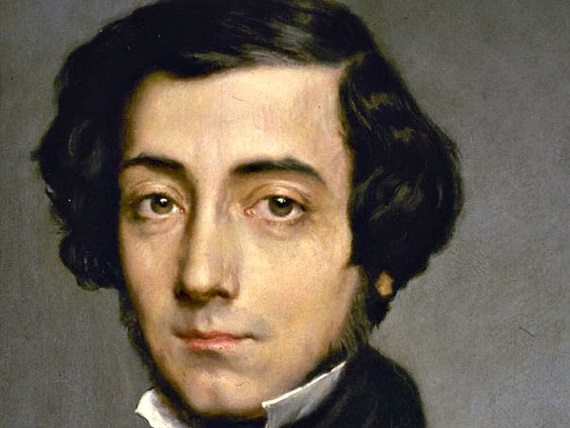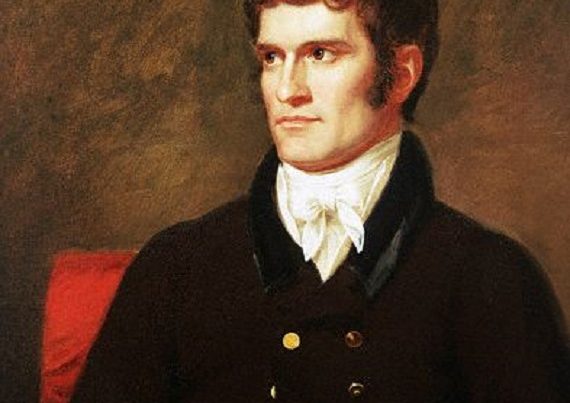I’ve been perplexed about Tocqueville’s posture towards the South for quite some time. On the surface, he seems to have a rather dismal view of the South. However, a more penetrating reading of Democracy In America* opens up new possibilities. Consider the following:
First, according to Tocqueville, the “seed of complete democracy” has its origin in New England. But there was a Southern offshoot of that seed. The introduction of slavery “was bound to exert an immense influence on the character, the laws, and the whole future of the South.” Whereas in New England it was Puritanism that “penetrated the entire Confederation.”
Second, Tocqueville did not view Puritanism’s influence as either necessarily benign or a long-term positive good. He wrote that “Puritanism was not only a religious doctrine; it also blended at several points with the most democratic and republican theories. Hence came its most dangerous adversaries.” By “adversaries” was Tocqueville hinting that the 1776 American Revolution could be on track to resemble the French Revolution in the latter’s more sinister characteristics? Perhaps. Because “Puritanism . . . was almost as much a political theory as a religious doctrine”, both the mores and laws were to be shaped by Puritanical principles. As legislator, the Puritan “forgetting completely the great principles of religious liberty he himself demanded in Europe . . . goes as far to strike with sever penalties, and often death, Christians who wish to worship God according to a form other than his.” Moreover, “the ardor for regulation that possesses him brings him to become occupied with cares most unworthy of him.” Is this Jacobinism in clerical garb?
Third, the hegemonic Puritanism is in significant ways at odds with the American Revolution’s principles, e.g., liberty and federalism. The American Revolution was led by the Southern aristocracy, or rather a “sort of aristocracy. The Southern aristocracy differed little “from the mass of the people, whose passions and interests it easily embraced, exciting neither love nor hate.” It was this class that, in the South, put itself at the head of the of the insurrection: to it the American Revolution owes its greatest men.” The South’s preference for decentralization juxtaposed to New England’s hegemonic quest for centralization is subsequently personified in Calhoun and Lincoln, respectively.
Fourth, Tocqueville’s posture towards the hegemonic New England Puritanism is (as I read him) that the trajectory of American political development is heading towards tyranny of the majority. This becomes clear when one considers his treatment of centralized political power and the probability that that power would in the hands of an intolerant Puritanical mindset provided with the legitimacy, i.e., cover, of universal suffrage to control and persecute the opposition.
Fifth, Tocqueville’s claim that “ as one descends toward the south . . . one peceives that talents and virtues become ever rarer among those who govern” could be viewed as a slight on Southern culture and politics. But that would be misreading Tocqueville. He claims that a “great number of vulgar men . . . occupy public offices” throughout America. This is manifested moreso in the House than in the Senate, the latter of which has a more of a Southern character. According to Tocqueville, this is attributable to the fact that men of character are reluctant to submit to the personal degradation requisite to electoral success in a democratic process. In the pre-Seventeenth amendment era, the Senate was more immune to personal degradation. He wrote that “Great talents and great passions generally turn away from [political] power in order to pursue wealth; and it often happens that one takes charge of directing the fortune of the state on ly when one feels oneself barely capable of conducting one’s own affairs.”
And, sixth, Tocqueville does implicitly anticipate and justify the South’s secession movement. His treatment of irreconcilable parties and factions, which he describes as nations within nations, combined with his awareness of men in the South of great talents and great passions, should be considered in light of his understanding of honor. He wrote that the “man who obeys violence bows and demeans himself. . . . without respect for rights, there is no great people: one can almost say that there is no society; for, what is a union of rational and intelligent beings among whom force is the sole bond?” Tocqueville asserted that the “freedom of association has become a necessary guarantee against the tyranny of the majority.”
Tocqueville died twenty months prior to South Carolina’s December 20, 1860, secession from the Union. Nevertheless, he was favorable towards, if not supportive of, South Carolina’s reaction to tariff controversy. With that said, Democracy in America should be read as a warning about the trajectory of democracy’s evolution towards tyranny, a trajectory anticipated by and suffered through by Southerners. Albeit Tocqueville may have misread Virginia’s founding, I would argue that he did not misread its end.
*Quotations are from Harvey C. Mansfield’s and Delba Winthrop’s translation of Democracy in America (The University of Chicago Press, 2000). This translation has substantive deviations from the 1969 (Anchor Books) J. P. Mayer ed., George Lawrence, translator, book.








America, my country
Sigh…….
What to do, what to do.
God, save my country.
Jesus saves, Jesus saves.
Onward Christian soldiers.
…….